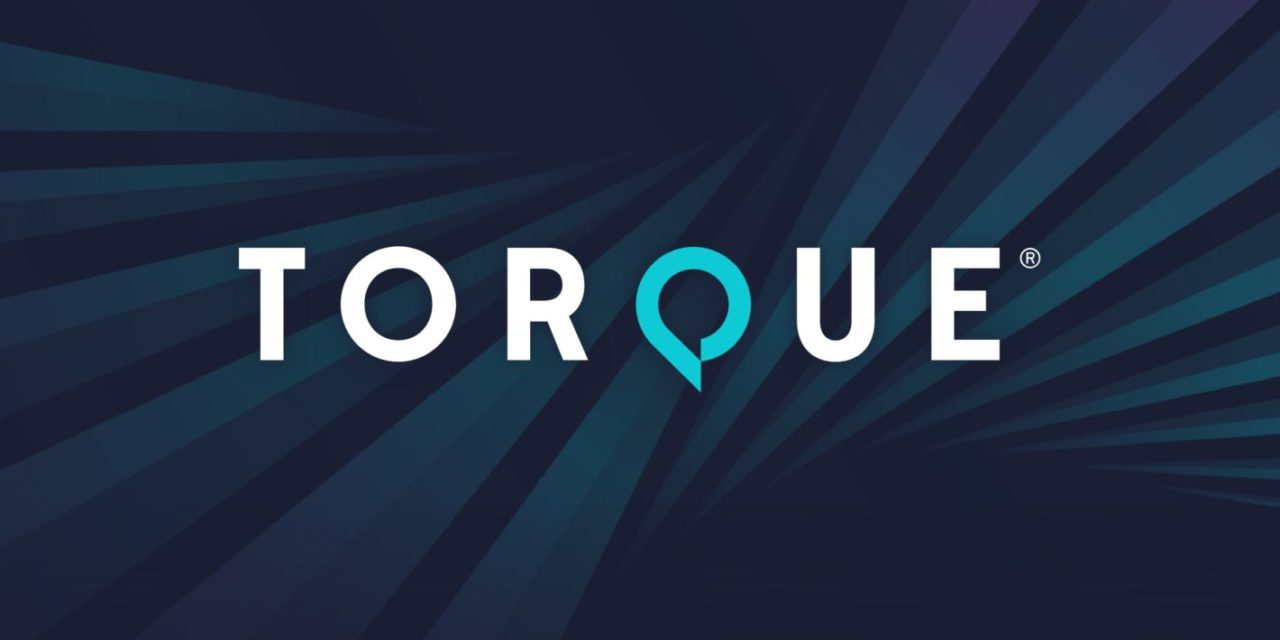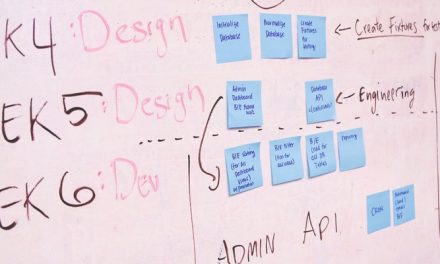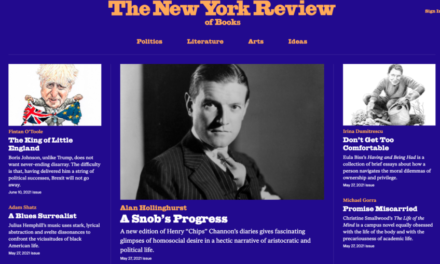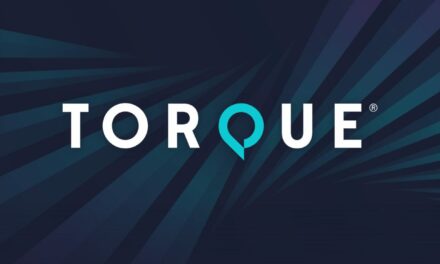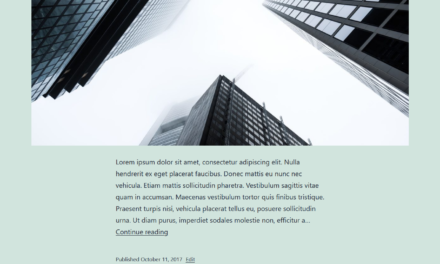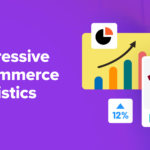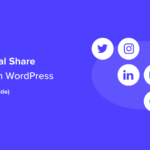Welcome to Press This, the WordPress community podcast from WMR. Here host David Vogelpohl sits down with guests from around the community to talk about the biggest issues facing WordPress developers. The following is a transcription of the original recording.
David Vogelpohl: Hello everyone and welcome to Press This the WordPress community podcasts on WMR. This is your host, David Vogelpohl, I support the WordPress community through my role at WP Engine, and I love to bring the best of the community to you hear every week on press this as a reminder, you can find me on Twitter @wpdavidv, or you can subscribe to press this on iTunes, iHeartRadio, Spotify, or download the latest episodes at wmr.fm. In this episode we’re gonna be talking about what we’re thankful for in WordPress and joining us for this very special interview is to myself. That’s right. I’m going to interview myself for this week’s Press This about the things that I’m thankful for in the WordPress ecosystem. So I’m really excited to go into this very special time of year. And of course we have our very special guest here as I interview myself. So let’s go ahead and kick it off. First question David. I’d like to ask you that I asked all of my guests is briefly tell me your WordPress origin story. When was the first time you used WordPress?
David Vogelpohl: Well, thanks, David. Well, I guess the first time I used WordPress, it was probably I guess it was around 2006 teen it was 2006 and I was doing a guest post for the blog marketing pilgrim which has since been sold that I think wound down but it was founded by a gentleman named Edie Beale and I was doing a guest post and the guest post was about Panama invading Europe. Not the country of Panama but rather an ad platform called Panama that Yahoo was launching an ad launched in the US and then they are going to launch it in Europe. So of course a very kind of a click Beatty headline there but that was the first time I got to use repressive This is a poster and then subsequently you know continued my journey with WordPress eventually building actually owned and operated WordPress agency for five years before ultimately joining WP engine where I am today.
DV: That’s really cool okay, so your first origin story, David, it wasn’t like building with WordPress but rather as a poster.
DV: Yeah, that’s right. No, I didn’t initially build like the Drupal around that time and of course gaming but insights and things like that. But my first experience yes was as a booster.
DV: Okay, okay, that’s super cool. Now, you said David, though, that you’re now in WP Engine he kind of your agency thing for a while there and now you’re dedicated. Could you tell us a little bit about what you do at WP Engine?
DV: Yeah, happy to um, I’ve done a lot I think over the I guess it’s like six years now or something since I joined WP engine but what my role is today is as VP of growth for the SMB side of the business which is the largest side of the WP Engine business. We also have a very healthy and growing enterprise side of our business, but my remit is on growing the SMB side of the business so my team’s consists of our product marketing or as well as our SMB marketing strategy or thinking about all the different ways that customers and traffic and funnels flow throughout the web in your business. work a lot with our product teams, our long term product strategy, and then of course, like corporate strategy and rollout things like that. And of course, a lot of engagement with my friends and various folks in the WordPress community which actually makes it easy to to host this podcast, because you know, there are a lot of folks in the ecosystem.
DV: That’s super cool David thanks for sharing that. I’m sure folks listening to the podcast right. We’re wondering a little bit more about what you do behind the scenes here at WP Engine. So thanks for diving in there. I want to shift gears now a little bit though, into kind of the primary focus of today’s podcast which is around what you’re thankful for the WordPress ecosystem. Even I’m just curious, like I’ve heard a lot on this show about people in your thoughts on generally the positivity you have, I guess around the workers ecosystem, but like one of the things you talked about a lot is kind of the open nature. of the community it is that one of the area’s you’re thankful for.
DV: Why yes, actually it is now thanks for asking, David. I really appreciate that. Yes, the open nature of the community and really, in the way our accepting it does of others is one of the the number one things I think I’m thankful for in WordPress. You know, I think one of the things that stands out there is just how open the community is to new people. I mean I’ve been in digital marketing and builder base communities in the past before WordPress and but I felt it was always like this test once you started participating.
DV: In other words, you had to know everything perfectly and you had to have a high level of experience in order to participate. And it was like this big barrier before you can start kind of diving in and participating in the community because of this fear of not being accepted. Or saying the wrong thing.
DV: And one of the things that really stood out to me as I got into the WordPress community was really how open people are to folks who join the community and new so it’s okay. Everybody has their first day and it’s okay that you’re learning and you don’t know all the ins and outs and tricks yet. And not only is it okay in the WordPress community, but it’s encouraged people jump right on board to help that new person out, help them learn help them continue their journey, and that this was really surprising to me how prevalent that was in the WordPress community. And I think that’s one of the top things I’m thankful for, which is how open the community is into accepting people accepting them for who they are, but also helping them continue their journey of learning to build with WordPress. I think that’s one of the coolest parts of the WordPress ecosystem.
DV: Nice. Nice. Well, you know, I can’t get it have to totally agree. Of course. It’s an amazing part of the WordPress community. Are there any other aspects of how like the community interacts together that you think you’re particularly thankful for?
DV: Yeah, well, I think, you know, like I said, the thing that stood out was, you know, people being really open about welcoming new folks into the community. But I think one of the other things that really stood out to me as I started to engage with people was really the level of cooperation and collaboration that happens between competitors. I have great friends and colleagues that work at other hosts. And this is of course, a typical and a lot of industries. And in the reason is that way in WordPress, I feel is of course, the open nature of the community and the fact that we’re all kind of contributing to the same end in a lot of ways. It’s all in our benefit. If WordPress is strong, it’s all in our benefit the community Gris, it’s all in our benefit if we work together collaboratively, collaboratively, to move the efforts and initiatives and community and ecosystem forward and to grow up larger. And that collaboration is of course, not just within house, it’s also within agencies, it’s within plugin providers, and of course they compete and of course, they’re to try to win the business of the target audience as best they can and it’s not always perfect, but again, kind of getting back to that really surprising aspect of new people joining the community and welcomed in. Again, this this idea that competitors would actually work together closely, and in great levels of effort in order to achieve a common outcome that really stood out to me and I find it really compelling part of participating in the WordPress ecosystem. And I’m really, really thankful for the level of cooperation that competing companies and individuals have within the WordPress ecosystem. I think it’s one of the coolest parts. Very, very thankful for that.
DV: Well, that’s awesome. Yeah, I guess that is kind of a cool part of the WordPress ecosystem day to day. And that’s totally thought of that before, but it is really kind of a neat part. It’s really interesting to hear your perspective there. Now, you’ve talked to a lot of course about the community itself, but I was maybe wondering if we could maybe kind of switch gears a little bit into more of the tactics that we’re investing in, learn more about what you’re thankful for there. But we’re gonna take a quick break, and we’ll be right back.
DV: Everyone, welcome back to Press This WordPress community podcast on WMR. This is your host, David Vogelpohl, I’m interviewing myself for a very special Thanksgiving episode around what David votable is thankful for in the WordPress ecosystem. Now, David, right before the break you were talking about parts of WordPress. That you were thankful for, and particularly the community, the open nature and how is accepting it as of others, how you were kind of surprised, but also we’re thankful for the cooperation between competitors working towards a common goal. I thought that was really cool. But now I kind of want to dive into more particulars relative to what you’re thankful for about say WordPress itself. Now what so so I guess that would be that standout thing that you think you’re thankful for about the WordPress software itself?
DV: Yeah, you know, there’s a lot of parts of WordPress that I you know, of course I really enjoy or find surprising or super helpful and, and of course, like with any other software system, there’s there’s something I dislike or wish was a little better, right, of course, that happens with all the tools we use in our life. I think the part that kind of stands out for me thinking about the WordPress software, and I think this is kind of one of this double edged sword situations, but really is it’s committed to backwards compatibility. WordPress, in my mind, a big part of the reason why it’s achieved 43% of the web and continues to gobble up market share in that way. I mean, certainly the fact that it’s free and open are big parts of it. But maintaining SAS and in a way ensuring success for those older sites, is part of what of course helps it gain market share over time. And if they didn’t do that, then these older sites would start to break and of course the ecosystem would start to reduce now of course, the double edged sword of missing if you’re playing any developer, of course, you know, what I’m talking about is like, but I don’t want to keep you know, making my software backwards compatible for more and more, you know, iterations of WordPress and of course, there are things where backwards compatibility in a way you could argue is is not possible. So older versions of PHP that are patched anymore, so on and so forth. But of course, within WordPress, there is this level of backwards compatibility, even behind sometimes supported versions. of underlying software. So that’s great for sites that don’t break. But, of course, can open up other issues. But I think the part I’m thankful for, is that commitment towards backwards compatibility and I get it’s a tricky exercise and it’s not always super clean. As you think about what you should and shouldn’t do for backwards compatibility. But I’m very grateful for that the people that build with WordPress can rely on it. And that WordPress has had this reputation over its entire lifetime of helping to make sure that we bring people along and do our best to not, you know, abandon people at their site. I do think there’s a course obligations from us as those operating words, WordPress sites to keep our software up to date. I think that’s incredibly important. On the WP Engine platform, we make sure all of our customers are unpatched versions of PHP patched versions of WordPress, but it’s really good. I think the backwards compatibility is a strong force in WordPress, and it’s absolutely one of the things I’m thankful for.
DV: Well, that’s really interesting, David, you know, a lot of people, of course, bemoan the backwards compatibility, but it was interesting to hear that you were you’re thankful for that.
DV: Yeah, totally. I think it just gets back in thanks for asking the question, David. I think it just totally gets back to the part of not leaving people behind is such an important part of the WordPress ecosystem. So that’s that’s why I thought I was thinking.
DV: that’s really cool, David, thanks for sharing that. I want to shift now a little bit into maybe what you’re thankful for in terms of WordPress contributions. You know, maybe on the financial side, or maybe like people’s careers, it’s something that like helped me understand like, some other areas, particularly on the value side. You’re thankful for it in the WordPress space.
DV: Yeah. That’s a good question. You know, I think like, you know, a lot, a lot probably most of the majority of people using WordPress, you’re using it for some sort of commercial endeavor, right? They’re using it to support their business. First, there’s a lot of personal bloggers and things like this, but the wind shear force, you may think of some medium to do some form of digital commerce in some way or the other. But I think there’s also an interesting part of WordPress. I feel from the monetization perspective that people don’t always necessarily think about, but that is the career path that I think that WordPress delivers for people. As most of the listeners of this show now, I guess, you know, there’s a spectrum of people who build with WordPress and it’s, it’s very accessible for the non technical a lot of of course, companies in the WordPress space are referred to people that build WordPress sites with only plugins themes and the editor, post and page editor with block editor. As assemblers, right. People are not using code they’re kind of assembling a site with a plugin and theme in, of course, content itself. And many of us, including myself, when we first got into WordPress, this is how we get to build. And then of course, over time, you’re like, well, I need to edit this. I need this to look different. So you start doing CSS and HTML, and then I need this to function differently. And you maybe start to learn code snippets and a little bit of PHP. And eventually, you maybe get to the point we’re able to create your own theme and maybe even again, your own functional application software. In other words, a plugin where you might start to enter what we had WP Engine anyways, we call the engineer path. And this is what I mean earlier, when I said that the WordPress community was open is like, you have these super engineers, and you have these assemblers, and they all show up at work camps and stuff, and everyone’s supportive of everyone else. It’s an incredible moment. But I think again, if you think about it from a career perspective, it’s an incredible platform for growing your ability to build and optimize digital experiences and websites. And we see it happen over and over and over and over and over again. I mean, even on this show, David when I hear you hosted every week you asked that what is your origin story, and like so many of them seem to start with like, I was at a burger joint. I was in college and doing stuff on the side. I had a completely different job that I didn’t like and I took the hobby side and my friends asked me to build one for them. And then I started charging, and then I built a career and then I quit my other job and then I even hired some people and started to grow a business and maybe I made a plugin, but it’s this great enabler. And I don’t think people realize that when they when they first get in and start building a WordPress site and and noodling around. And changing stuff is, is what that can lead to. But if you look in the rearview mirror, and you talk to people today that run WordPress operated businesses or WordPress engineers with very high paying jobs, but you realize it’s a lot of them started in that assembler way. And so seeing that path and what it provides and the financial freedom that it offers in multiple ways, freelancing and spending more time with your family and having control of your schedule, starting business and growing that value and equity for yourself and your family, and certainly others within your organization. All of that is enabled by WordPress. In the open nature of in the open nature of the community and the ability to grow.
DV: And so that spectrum is incredible. And again, it’s part of what leads to 43% of the web, being powered by WordPress, but when you look at the impact that it has to people in their lives, I am so grateful that that is there. And I’m grateful for some very real reasons. A lot of people that can benefit from these things are my friends and people even in my family and of course in an ecosystem that spans the entire world. And I think the level of opportunity that’s there is just incredible. And I think it’s it’s an amazing part of the WordPress ecosystem and it’s something that I’m incredibly, incredibly thankful for. And all the people that get to benefit from the spectrum and the freedom within the system itself to learn how to build with WordPress, I think, again, is a super important part of WordPress. I’m really thankful for that. Right.
DV: But that it’s a really good point, David, thank you for bringing that up. So that it’s this notion like I guess you’re saying like it can be like a non technical person assembler, basically compact, you know, putting together as I look into themes, all the way to engineer and, you know, I don’t I guess that is a good point. Like I think a lot of people do think of themselves on like one thing or the other, and don’t necessarily always recognize that journey. That was a really, really good thing to be thankful for.
DV: Thanks for bringing that up, David, really interesting. I want to dig deeper, even more and kind of think about WordPress and kind of a future sense or maybe a more global sense. But we’re gonna take our last break and we’ll be right back.
DV: Hello, everyone. Welcome back to Press This the WordPress community podcast and WMR. This is your host David Vogelpohl. We’re in the middle of a very special Thanksgiving episode where I’m interviewing myself about what I’m thankful for in WordPress. Alright, right before the break. David was telling us that he is thankful about the spectrum of capabilities within WordPress and how it helps people with their career kind of going from a similar similar to engineer I thought that was pretty cool.
DV: So David, help me understand though, like in a broader sense, you know, in terms of say the future or just I don’t know WordPress at large like there are other areas that you think you’re thankful for. Around WordPress.
DV: Yeah. You know, the future is funny, right? Because it’s always changing. My career, Digital’s started in 1996, and it’s funny I remember thinking, that first month, man, I wish I had gotten into the internet in the good old days. And of course now in 2020. When thinking back you’re like, Oh, this is silly, David. You were you were in the early days, the good old days. And of course, many things changed since 1996 Technologies changes. I remember shortly after that time building my first flash site, and flash doesn’t exist in that way anymore. In some so many things have changed over the years. As I look at WordPress and its dominant share on the web, you start to think about like, well, what does the future hold? I think part of what the future holds and I think we’re starting to see this take Route more and more is expansion particularly in non English speaking markets.
DV: WordPress has a tremendous community of polyglots who have to translate it translate resources. And of course, there’s there’s anchors of communities and non English speaking countries, but I think that’s going to be a very large opportunity for growth in the future. was very happy to see WordCamp Asia, getting ready to kick off right there before the pandemic, Christian Dimmick, kind of uprooted that at least as a live event. And really excited to see that come back and the energy that’s going to happen there. But I’m really thankful for, again, that openness within the community, leading the paths around kind of global expansion, particularly in non English speaking markets. But as I also think about WordPress is global impact. Again, I think the the opportunity that presents even in English speaking countries is still tremendous, and there’s still a ton of awkward Tindie there. Of course, the ecosystem of WordPress is quite large, and there’s lots of things, lots of documentation and tools of course, I’m very thankful for that. And I’m really particularly thankful for the free or the very least the freemium with great value approach of the WordPress ecosystem incredibly thankful for that. And I think from a global sense is especially as we start to think about WordPress kind of growing within countries where maybe it hasn’t grown before. One of the areas that stands out to me as a guest David, you interviewed not long ago here on Press This, Mary, Mary Jo, and the work she’s doing around you know, building and in helping to nurture WordPress communities within Africa, I thought that was really cool. And we see pockets of that occurring, you know, in different global parts around the world. So again, I think you’re right to ask that question. Like, I think the global impact of requests is definitely definitely something that I’m thankful for. Well, that’s super cool. Really interested to hear about the global impact game and thanks for sharing that. I don’t want to get back to the opportunity side. You know, there has been a rich tradition of entrepreneurship and WordPress and you know, lots of people kind of making requests to these businesses.
DV: I’m just curious like, what your thoughts are on the entrepreneurial side of WordPress?
DV: Yeah, yeah, obviously a lot happening there. I think like generally person thankful for the entrepreneur entrepreneurial opportunities that are available within WordPress opportunities. I got to take advantage of myself when I owned and operated my own WordPress agency, very lucrative. And I think, you know, lots and lots of other businesses out there push based on plugins, themes, services within WordPress, certainly things like hosting company record now. And I think I think for for the opportunities that are available there for entrepreneurship and I think if you look even just prior episodes of press this what’s been going on in the community, you know, acquisitions are bound everywhere. And that’s an incredible validating point for people running WordPress businesses today. And I think that’s an amazing thing. And so while there’s a keyhole and it changes and shifting, now, of course, people with varying levels of opinions on different acquisitions, but the reality is that activity interest is good for WordPress entrepreneurs. And I think that’s an incredible part. We’re very thankful for that. And the opportunities that it’s providing the ecosystem. And of course, I guess just a just a final thing I can say I’m thankful for with WordPress, certainly the opportunities and the openness. The number one thing for our whole lifelong friends, I’ve made a big part of who I am as an individual, and I’m very, very thankful.
DV: Oh, that’s a great point. David, that was incredible. Thank you so much for sharing what you’re thankful for David, really appreciate it.
DV: Thank you for being on the show today.
DV: Oh, thanks, David. I really appreciate it. Hopefully having back one time. Thanks for having me. Awesome. Awesome. Yeah, we’ll totally have to have you back. Alright, if you’d like to learn more about what David is up to, you can visit WP Engine comm thanks, everyone for listening to press this WordPress community podcast on W Mr. Again. This has been your host David Vogelpohl. I support the WordPress community through my role at WP Engine and I love to bring the best of the community to you every week Press This.

